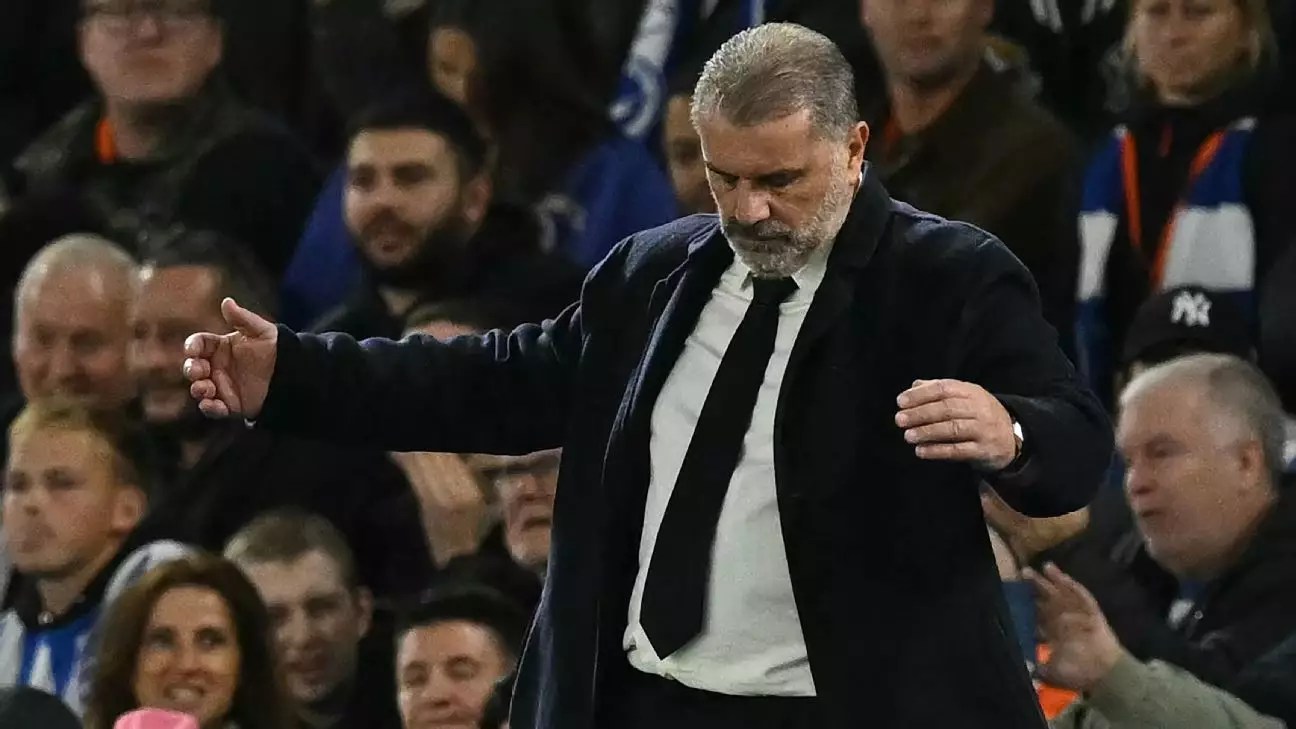Tottenham Hotspur entered their Premier League clash against Brighton with high hopes after a strong first-half performance. Scoring two early goals through Brennan Johnson and James Maddison, Spurs seemed poised to secure a vital win that could propel them into contention for a top-four finish. However, what transpired in the second half was nothing less than a disaster, culminating in a 3-2 defeat that left manager Ange Postecoglou grappling with the implications of such a loss. This defeat signifies more than just a drop in points; it highlights a distressing trend of inconsistency that could threaten the club’s aspirations this season.
Postecoglou’s reaction to the defeat was palpable, expressing feelings of disappointment and a sense of disappointment that echoes throughout the Spurs fanbase. He referred to it as his “worst defeat” since assuming the managerial role, suggesting that it impacts not just the standing in the Premier League but also the morale and mentality of the squad. The manager’s analysis is revealing; he attributes the poor performance in the second half to a loss of focus and an unsettling sense of complacency. His assertion that the players appeared to “accept their fate” falls under scrutiny. How could a side that has shown resilience in previous matches allow themselves to falter so dramatically?
Complacency is a sneaky adversary in sports, often lurking beneath the surface of success. Postecoglou’s comments about possibly getting “carried away” during what seemed to be a comfortable lead underscore a critical aspect of sports psychology: the need for constant vigilance. Football is unforgiving; a momentary lapse in concentration can lead to altering the course of a match drastically, as undoubtedly illustrated by Tottenham’s ill-fated second-half display. This defeat serves as a stark reminder that a season is a marathon, not a sprint, and consistency is the bedrock on which success is built.
As the team enters the international break in ninth place on the table, the stakes of upcoming fixtures will only intensify. The opportunity to have climbed into the top four slipped away, leaving the squad with a need to reassess strategies and approach in both training and match preparation. Players must reflect on the lessons learned from this setback. If they don’t, they risk allowing this defeat to define their season, rather than being merely a bump along the road.
Postecoglou shoulders the responsibility to instill a mental fortitude within the team as they prepare for the challenges that lie ahead. The manager’s commitment to rectifying the issues that led to this defeat will be imperative for fostering a competitive spirit, ensuring that the squad learns to fight for every point, and recaptures the momentum vital for a successful campaign. The current situation presents a pivotal moment for posturing their ambitions in the league—whether they rise to the occasion or falter under the pressure remains to be seen.


Leave a Reply